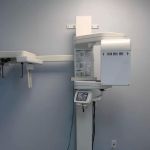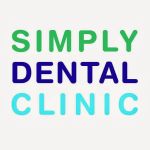How to Prevent a Tooth Abscess from Recurring
- Understanding Tooth Abscesses
- Common Causes of Tooth Abscess
- Steps to Prevent a Tooth Abscess from Recurring
- Importance of Regular Dental Checkups
- When to Seek Dental Care
1. Understanding Tooth Abscesses
A tooth abscess is a painful infection at the root of a tooth or between the gum and a tooth. It occurs when bacteria invade the tooth or surrounding tissues, often leading to swelling, severe pain, and sensitivity. A tooth abscess is typically caused by untreated tooth decay, gum disease, or trauma. The infection can spread if left untreated, causing serious health complications such as tooth loss or even affecting other areas of the body.
Recognizing the signs of a tooth abscess early can help prevent it from becoming a recurring issue. Symptoms of a tooth abscess include sharp, throbbing pain, swelling in the face or gum, fever, and a bad taste in the mouth due to pus. If you've already dealt with a tooth abscess, it's crucial to take preventative measures to avoid it from coming back in the future.
2. Common Causes of Tooth Abscess
To prevent a tooth abscess from recurring, it’s important to understand the common causes that contribute to the development of these infections:
- Poor Oral Hygiene: The most common cause of a tooth abscess is poor oral hygiene that leads to plaque buildup and untreated cavities. When plaque is not removed regularly, it can lead to tooth decay, which eventually causes an abscess.
- Untreated Tooth Decay: If cavities are left untreated, they can deepen, leading to an infection at the tooth's root. Once the infection spreads, it can form an abscess.
- Gum Disease: Gingivitis and periodontitis can lead to gum pockets, which trap bacteria and lead to infections in the gums and teeth, potentially causing abscesses.
- Trauma or Injury: Any injury to the tooth, such as cracks or chips, can expose the pulp (the soft center of the tooth) to bacteria, which may result in an abscess.
3. Steps to Prevent a Tooth Abscess from Recurring
To prevent a tooth abscess from coming back, it's essential to adopt good oral care practices and stay vigilant with your dental health. Here are some steps you can take:
- Maintain a Consistent Oral Hygiene Routine: Brush your teeth at least twice a day with fluoride toothpaste and floss daily to remove plaque and prevent cavities. Don't forget to brush your tongue and the back of your teeth, areas that are often overlooked.
- Use an Antiseptic Mouthwash: Incorporating an antiseptic mouthwash into your routine can help reduce bacteria in the mouth, especially after meals or snacks. This can help prevent gum infections that may lead to abscesses.
- Visit the Dentist Regularly: Regular dental checkups every six months are essential. During these visits, the dentist will check for early signs of decay, gum disease, and other issues that could lead to a tooth abscess. Professional cleanings help remove tartar buildup that brushing and flossing alone can’t address.
- Address Cavities and Tooth Damage Promptly: If you have cavities or cracks in your teeth, get them treated immediately. Don't wait for the damage to worsen and lead to an infection. Early intervention can prevent an abscess from forming.
- Maintain a Healthy Diet: Limit sugary foods and drinks, as they contribute to tooth decay and plaque buildup. A balanced diet rich in vitamins and minerals, particularly calcium and vitamin D, supports strong teeth and gums.
- Quit Smoking: Smoking can increase the risk of gum disease and reduce the ability of your body to fight infections, including those that lead to tooth abscesses. Quitting smoking can significantly improve your oral health.
4. Importance of Regular Dental Checkups
Regular dental visits are one of the most effective ways to prevent tooth abscesses from recurring. Your dentist can detect early signs of tooth decay, gum disease, and other oral health problems before they turn into major issues. During a routine checkup, the dentist can:
- Identify Cavities Early: Small cavities can be treated easily with fillings before they develop into deeper infections that could cause abscesses.
- Monitor Gum Health: The dentist will check for signs of gingivitis or periodontitis, which, if untreated, can lead to abscesses.
- Clean Hard-to-Reach Areas: Professional cleanings remove tartar buildup from areas that are difficult to clean with brushing and flossing alone. This helps prevent infections from starting in the gums or teeth.
5. When to Seek Dental Care
If you experience symptoms such as severe tooth pain, swelling in the gums or face, or fever, it’s crucial to see a dentist immediately. Ignoring the signs of a tooth abscess can lead to further complications, such as the spread of the infection to other parts of the body, which could become life-threatening. Early intervention can prevent the need for more invasive treatments, such as tooth extraction or root canal therapy.
Even if you don’t have symptoms, it’s important to schedule an appointment with your dentist if you’ve had a previous tooth abscess. Your dentist can evaluate your oral health and ensure that no further abscesses will occur. If you’re looking for more information or dental care, visit Dentistry Toothtruth for expert services and tips on maintaining healthy teeth and gums.







 Mckenzie Family Dentistry4.0 (181 review)
Mckenzie Family Dentistry4.0 (181 review) Reve Orthodontics - Midtown Atlanta4.0 (258 review)
Reve Orthodontics - Midtown Atlanta4.0 (258 review) Kay Family Dentistry5.0 (186 review)
Kay Family Dentistry5.0 (186 review) Affordable Dentures & Implants4.0 (651 review)
Affordable Dentures & Implants4.0 (651 review) Gardena Dental Care4.0 (416 review)
Gardena Dental Care4.0 (416 review) Simply Dental Clinic0.0 (0 review)
Simply Dental Clinic0.0 (0 review) The Importance of Oral Health Education During Pregnancy for a Healthy Pregnancy
The Importance of Oral Health Education During Pregnancy for a Healthy Pregnancy Best Tips for Brushing Your Teeth Properly for Healthy Gums: Essential Techniques for Oral Health
Best Tips for Brushing Your Teeth Properly for Healthy Gums: Essential Techniques for Oral Health Why Skipping Dental Checkups Can Lead to Bigger Oral Health Problems
Why Skipping Dental Checkups Can Lead to Bigger Oral Health Problems Advantages of Porcelain Dental Restorations
Advantages of Porcelain Dental Restorations How Can Diabetes Cause Tooth and Gum Problems? Preventing and Managing Oral Health Issues
How Can Diabetes Cause Tooth and Gum Problems? Preventing and Managing Oral Health Issues Healthy Habits for Promoting Good Oral Health and Hygiene: Tips for a Healthy Smile
Healthy Habits for Promoting Good Oral Health and Hygiene: Tips for a Healthy Smile